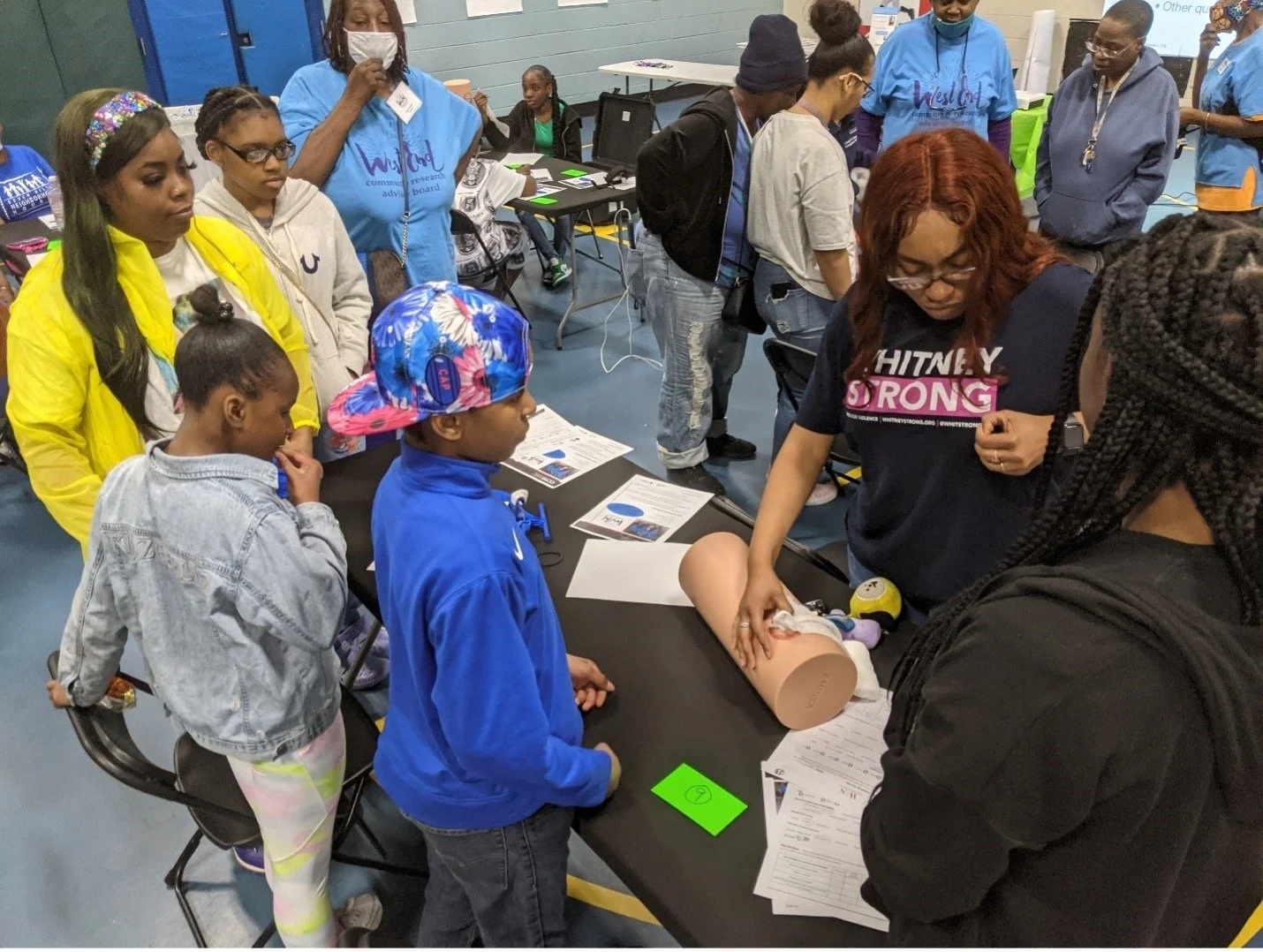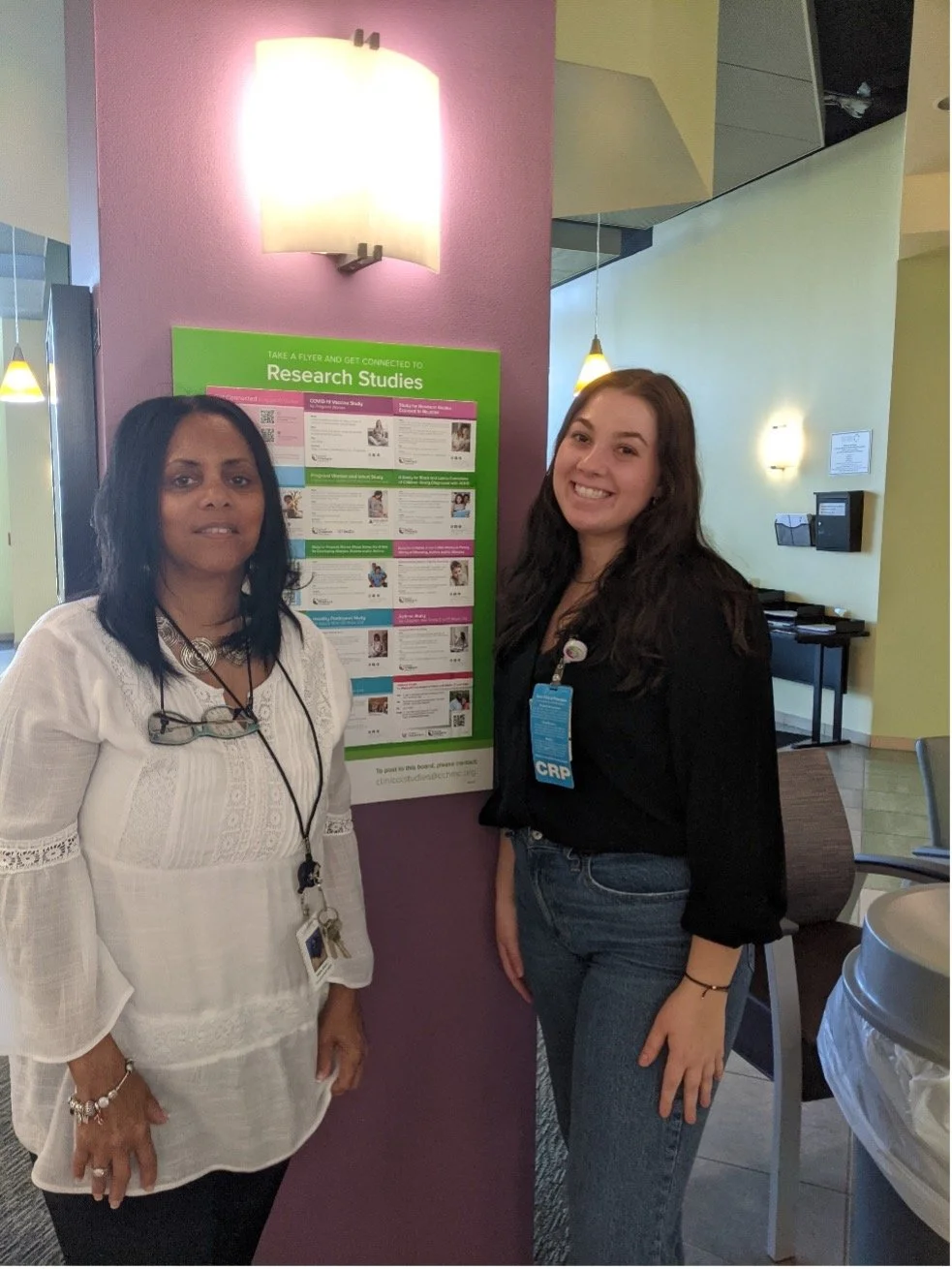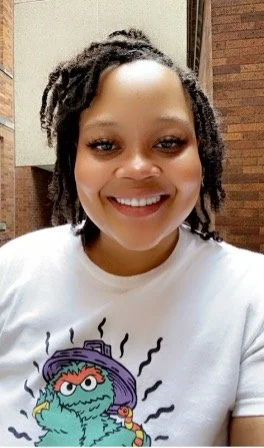Malika Muhammad (they/them) just joined the RPAC recently and was asked to share their experience and thoughts about their research journey, the importance of research and joining the RPAC as our spotlight research participant for this edition! The following are their responses.
1) Tell us a little about you...
I am a Non-binary Sickle Cell Warrior! My favorite music artists are Beyoncé & Kehlani. I enjoy being outside in the sun, all kinds of art, and innovating makeup looks. I’m a huge advocate for BIPOC+, LGBTQIA+, and Community Health. My zodiac sign is Pisces!
2) Can you share a little bit about your journey at Cincinnati Children’s, including your research experiences?
I was a CCHMC patient since after birth to age 21. I have been in various research studies from questionnaires to MRI studies to blood draws and medications. Typically, the focus was to track my development as a person living with Sickle Cell Disease (SS) or to help treat my symptoms. I was born in 1999 so I’ve experienced a lot of progress in helping to find a cure. In 2020, I began to work for CCHMC as a Community Health Worker on a research study to help SCD teens transition! I have since become a Certified CHW and now, I consult on multiple research projects to help improve Health Equity. The RPAC is a brand-new experience for me, and I’m so grateful to represent SCD Warriors and our Transgender communities. I was thrilled to see a project that exists to include more voices from all walks of life. It’s beautiful to see the patients have a say in what they’d like to see from research!
5) What motivated you to participate in research?
I feel like my motivation was different for each study. For the most part, I was genuinely curious about the impact of what the research could provide! The research I did seemed like it was going to help future generations of Sickle Cell patients. I appreciate research with good intentions, especially if it includes diverse communities of people. I was interested in how the medicines I took for research could improve my general well-being, and I wanted to know if I could feel a difference. Also, I am a data person, so I was interested in seeing the progress and results as well!
7) Why did you join the RPAC? What has been surprising to you about the RPAC?
I joined RPAC to use my voice with a council of representatives to help change how our communities get our research information. I want more representation from the youth. These are the people CCHMC works for, and we need more opportunities to express our ideas and interests! The RPAC has been a very welcoming environment and I’m learning new ways that research works as well. It’s a win-win to be informed and to be consulted with!
11) What would you tell your peers about research who are hesitant to participate?
Try looking at research as a learning opportunity! See what you can know more about and how the research works. If you have questions, ask away, and talk about your challenges too! The researchers are there to help you understand the process and uncover insights to your conditions. No matter the length of the study, you have the chance to grow. You could explore a part of science and technology you never knew about. You have a new opportunity to develop your health, and it’s cool to learn what works for you and what doesn’t!
12) What would you say to researchers about the RPAC?
I would tell more researchers to come to RPAC to hear from the people you study! Get to learn the population you serve. Change your approach and do something different than you’ve always done. Get out of your comfort zone and explore the lives of your patients. If you want to see more retention, more progress, and more collaboration, then you would really benefit from showing up at our communities. The RPAC is a great place to start!
About the RPAC and WE C-RAB. The RPAC and WE C-RAB are resources available to anyone at Cincinnati Children’s Hospital interested in learning the research participant or community perspective and improving how research is conducted at the hospital or out in the community. If you are interested in seeking feedback from one of these groups at one of our meetings, or through electronic survey, contact Julie Wijesooriya.



















